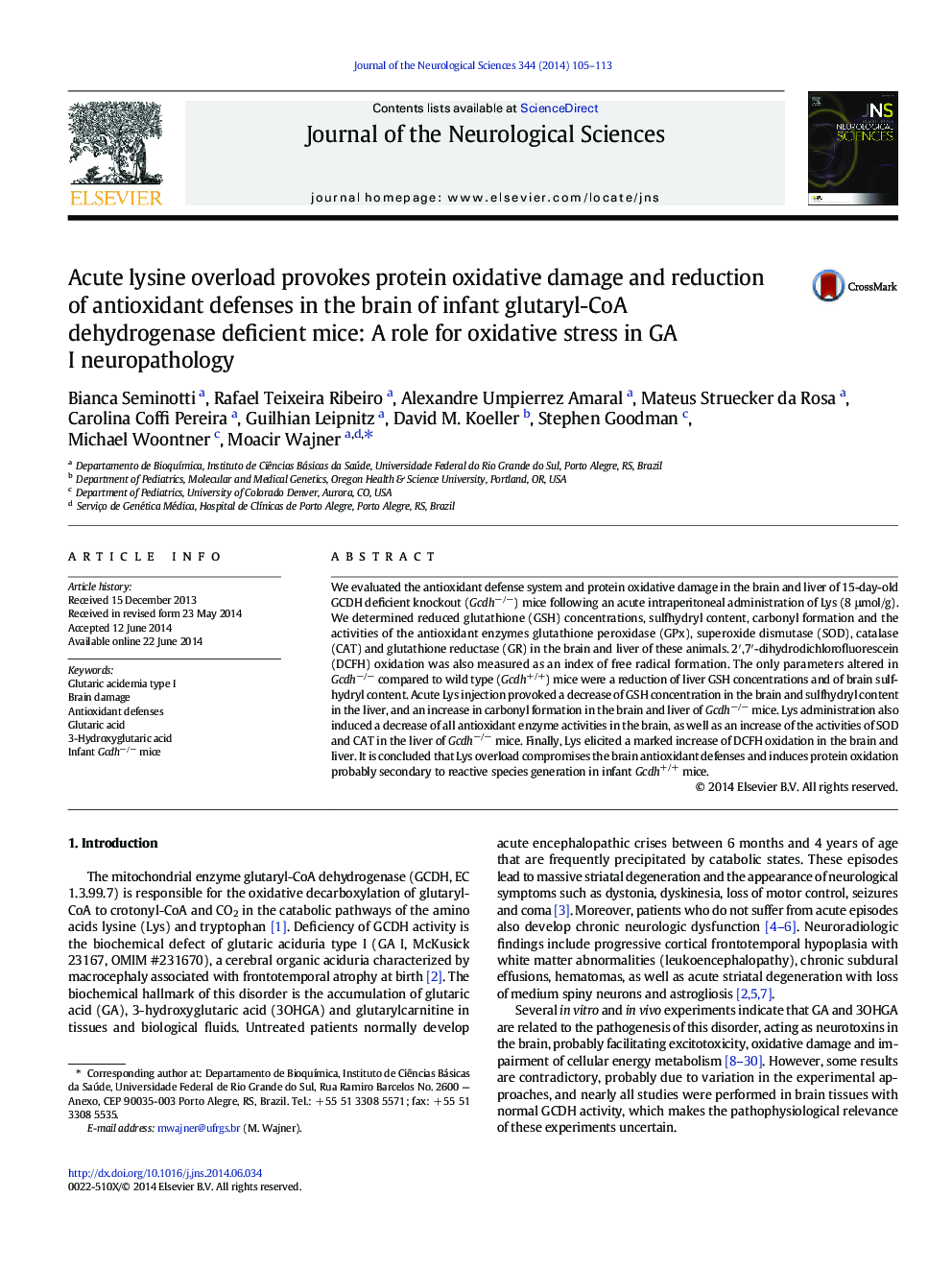| Article ID | Journal | Published Year | Pages | File Type |
|---|---|---|---|---|
| 1913534 | Journal of the Neurological Sciences | 2014 | 9 Pages |
•Reactive species generation is induced by acute lysine administration in Gcdh−/− mice.•Brain and liver protein oxidative damage follows lysine overload in these animals.•Brain antioxidant defenses are impaired by acute lysine overload in Gcdh−/− mice.•Disruption of redox homeostasis may contribute to the pathogenesis of GA I.
We evaluated the antioxidant defense system and protein oxidative damage in the brain and liver of 15-day-old GCDH deficient knockout (Gcdh−/−) mice following an acute intraperitoneal administration of Lys (8 μmol/g). We determined reduced glutathione (GSH) concentrations, sulfhydryl content, carbonyl formation and the activities of the antioxidant enzymes glutathione peroxidase (GPx), superoxide dismutase (SOD), catalase (CAT) and glutathione reductase (GR) in the brain and liver of these animals. 2′,7′-dihydrodichlorofluorescein (DCFH) oxidation was also measured as an index of free radical formation. The only parameters altered in Gcdh−/− compared to wild type (Gcdh+/+) mice were a reduction of liver GSH concentrations and of brain sulfhydryl content. Acute Lys injection provoked a decrease of GSH concentration in the brain and sulfhydryl content in the liver, and an increase in carbonyl formation in the brain and liver of Gcdh−/− mice. Lys administration also induced a decrease of all antioxidant enzyme activities in the brain, as well as an increase of the activities of SOD and CAT in the liver of Gcdh−/− mice. Finally, Lys elicited a marked increase of DCFH oxidation in the brain and liver. It is concluded that Lys overload compromises the brain antioxidant defenses and induces protein oxidation probably secondary to reactive species generation in infant Gcdh+/+ mice.
